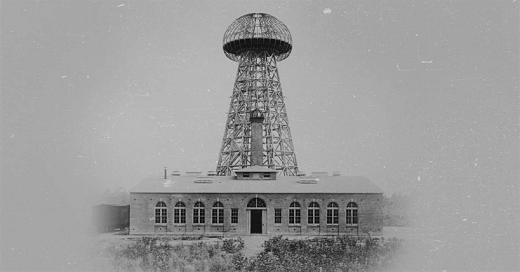The Twilight Zone redefined storytelling, drawing audiences into the unimaginable. Now, 66 years later, top writers, artists, and musicians are stepping into its eerie glow with a fresh twist. Ready to see where they’ll take you?
Liz Zimmers | Edith Bow | Sean Archer | Bryan Pirolli | Andy Futuro | CB Mason | John Ward | NJ | Hanna Delaney | William Pauley III | Jason Thompson | Nolan Green | Shaina Read | J. Curtis | Honeygloom | Stephen Duffy | K.C. Knouse | Michele Bardsley | Bob Graham | Annie Hendrix | Clancy Steadwell | Jon T | Sean Thomas McDonnell | Miguel S. | A.P Murphy | Lisa Kuznak | Bridget Riley | EJ Trask | Shane Bzdok | Adam Rockwell | Will Boucher
All the World’s Static
1.
The flea market was a wilderness of rust and recollection. Sophie wandered its narrow paths with the detached curiosity of someone visiting a museum of someone else’s life. The vendors hawked their wares half-heartedly, the objects themselves held no value beyond their role as tokens of barter.
One table displayed old typewriters, their keys rows of chipped teeth, arranged beside a stack of curling film canisters. Another had a pile of jewelry, tangled and tarnished, that sparkled weakly under the grey autumn sky. Sophie’s fingers hovered over a bracelet with a single dull garnet but did not pick it up.
The radio caught her eye from across the aisle. At first, it was another piece of forgotten machinery, but something in its shape - a simplicity that defied its era - drew her closer. It sat at the far edge of a table piled with broken clocks and half-empty boxes of bolts, left there seemingly by accident.
The casing was smooth, black, and polished, though not with care; it had the sheen of an object that resisted decay on principle. The knobs were rounded and translucent, with veins of pale amber running through them, and the speaker grill was finely perforated, crafted by someone who cared more for form than function.
Sophie picked it up. It was heavier than it looked, and cool to the touch, a stone left out in the morning frost.
“Not many people know how to use one of those anymore,” the vendor said. His voice startled her - it was low and gravelly, as though he had not used it in some time.
She glanced at him. He was wiry, his face weathered to the color and texture of parchment. His eyes glinted beneath the brim of a flat cap, but his expression was unreadable.
“I like old things,” Sophie said, brushing a thumb across the radio's smooth surface. “It still works?”
The man shrugged, the motion almost serpentine. “Depends on what you mean by ‘works.’ It’s not for listening to the news, if that’s what you’re asking.”
“What’s it for, then?”
“For hearing what’s there. And what isn’t.”
The words sent a chill down her spine, though she told herself it was just the autumn air creeping through her coat.
“How much?” she asked.
“Fifty,” he replied. Then, as she dug into her bag for her wallet, he added, “But mind how you tune it.”
She paused, glancing up at him. “What does that mean?”
He didn’t answer. His thin lips twisted into something that might have been a smile — or a grimace — and he turned his attention to another customer.
Sophie carried the radio back to her apartment with the care she reserved for fragile treasures. She lived on the third floor of a brownstone, where the ceilings were high and the windows narrow. The building smelled of peeling paint and distant cooking, but it was quiet, which she needed.
Her apartment was cluttered with the remnants of other people’s lives: books with yellowing pages, teacups missing their saucers, and lamps with stained-glass shades. She placed the radio on her workbench near the window, where the late afternoon light caught its polished surface. For a moment, she simply stared at it. It looked oddly out of place among her other possessions - too pristine, too self-contained. She half expected it to hum with life even before she plugged it in.
Shaking off the thought, she found the plug and connected it to the outlet. The radio buzzed faintly, a sound like a distant hive, and the dials flickered to life, glowing faintly amber. She turned the first knob. The static hissed and crackled, and a faint whistle rose and fell like wind slipping through a crack in a window. The sound was oddly comforting, the warm murmur of familial voices in another room. She turned the second knob, and the whistle sharpened into something more like a voice — muffled, indistinct, but undeniably human. It spoke in fragments, the syllables disjointed, the signal bouncing off the walls of some vast, unseen space.
And then, just as she leaned closer to decipher the words, she heard it. Her name.
Keep reading with a 7-day free trial
Subscribe to Ear Candy Update to keep reading this post and get 7 days of free access to the full post archives.




